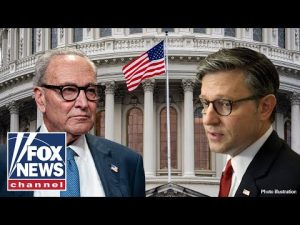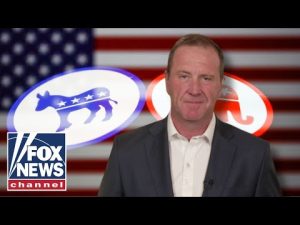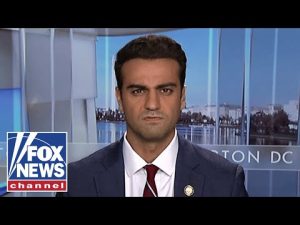In the bustling world of politics, where every word can make waves across the nation, there’s an ongoing clash between those who crave personal freedom and those who seem bent on wielding power over every aspect of life. Recently, a fervent debate ignited over the role of government in people’s lives, with some commentators sounding the alarm about what they see as a growing administrative state determined to govern rather than serve. It’s a topic that has many shaking their heads in disbelief as they consider what freedom truly means.
At the heart of the matter is the spirited argument about income taxes, regulations, and the legacy of wealth. There was a time, they argue, when hard work and success meant that families could pass on not just their stories, but their fortunes without governmental interference. Nowadays, however, many feel that the chains of bureaucracy are tightening around them. The notion of a bygone era—when Americans could keep the fruits of their labor without the fear of taxes—is heady and stirring. It brings to mind a simpler time that some in today’s society might be yearning for, as they witness a shift toward a government that seems eager to dictate how they live their lives.
The commentary also took a bold turn as it addressed the cultural dimension of this political tussle. There is a growing realization among Latino communities and those involved in the Great Black Awakening that the promises of dependency that have been offered by the Democrats often come with strings attached. Instead of paving the way to prosperity, these empty promises have left many feeling disenfranchised. People are starting to see through the smokescreen of government support and are recognizing that true liberty can’t be won with handouts, but rather through empowerment and opportunity.
As the narrative unfolds, it becomes clear that the fear of losing control over the populace is palpable among the ranks of the left. The alarm bells ring loudly when discussions of dismantling what some refer to as the “deep state” arise. In their eyes, such changes would mean a significant loss of power, and they’ll go to great lengths to maintain the status quo. It’s as if they see liberty-loving individuals as direct threats to their control—a notion that many freedom advocates find not only amusing but also infuriating.
In conclusion, as this debate continues to swirl, it’s evident that a clear divide exists. On one side are those who believe in a robust government role, while on the other are the liberty lovers who cherish the gifts of personal freedom and self-determination. The path forward will ultimately depend on the collective strength of individuals who yearn for a return to true liberty—where government serves the people rather than controls them. Only time will tell whether this awakening will lead to lasting change or if the call for freedom will be drowned out by the clamor of big government aspirations.







